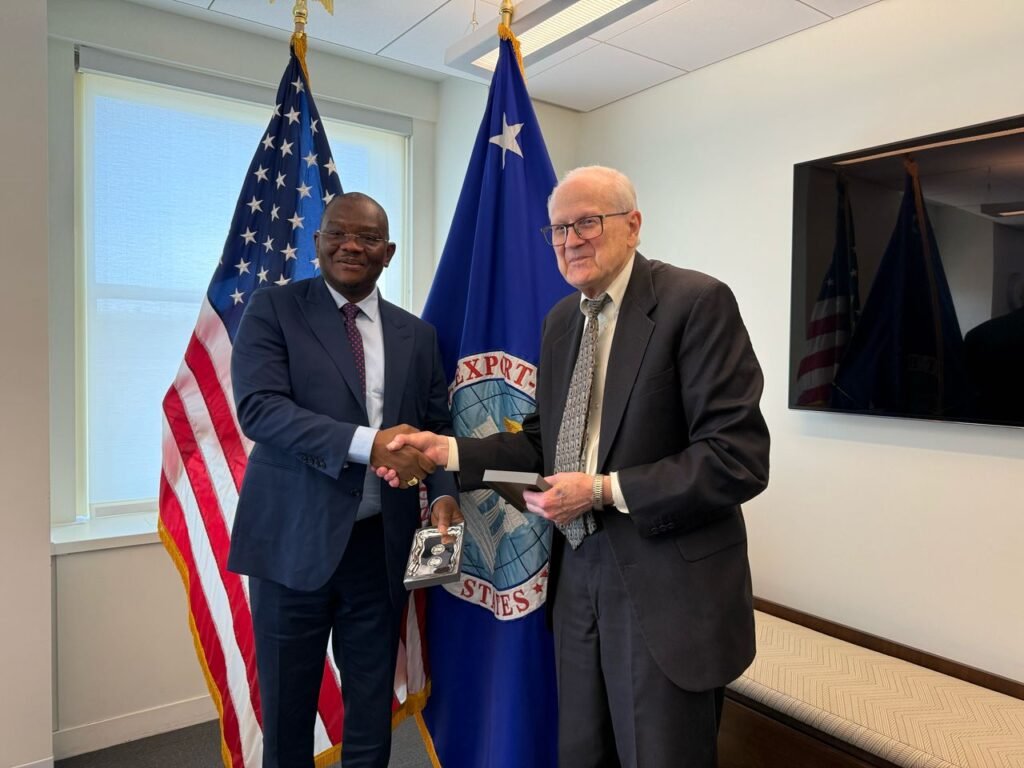News
NAGRAT backs decision to allow SHS, JHS students to write WAEC exams

The National Association of Graduate Teachers (NAGRAT) has backed government’s decision to allow final year Senior and Junior High School (SHS/JHS) students to write this year’s West Africa Examination Certificate (WAEC) examinations.
According to Eric Angel Carbonu, President of NAGRAT, the students had already completed the syllabus and have been adequately prepared for the examinations before the schools were forced to close down in the wake of the coronavirus (COVID-19) pandemic.
“The short stay at home will not be a problem because the students were in the revision stage, preparing for the examinations. They had already completed the syllabus and were just in line to write their papers when the diseases struck the country. I agree that they write the examination rather than progress them with the Continuous Assessment which is fraught with challenges,” he stated.
In an interview with the Ghanaian Times yesterday in Accra, he, however, expressed concern about the decision to re-open schools this month although Ghana’s COVID-19 positive cases continue to rise.
He said re-opening of schools should have been delayed until September or October in order not to risk the lives of students and teachers.
“I agree that the re-opening of schools should have been pushed back to September or October, so that by then we would have had ample time to know how we will go about the situation to protect our students and teachers. We must place the lives of the students and teachers and anybody for that matter above any certificate,” he stated.
Although the delay would have thrown the academic calendar off-gear, Mr Carbonu explained that, the disease has impacted negatively on all sectors, including education, and destabilised economies across the globe, and Ghana could not be an exception.
“Until a definite global response to COVID-19 was found, the NAGRAT President said, life would not return to normal as before, stating that “we must prioritise the lives of our people until then,” he said.
Currently, he said, there was growing mixed feelings among parents as to whether or not schools should be re-opened when Ghana’s recorded cases continue to rise with no cure or vaccine for treatment.
He noted that there was uncertainty among students and teachers on how the schools’ environment would be ideal to curtail spread of the disease.
Mr Carbonu said mass testing for students and teachers, which has been proposed, was not the ideal solution as stated by some health experts, adding that “the associated costs and it being less of a prevention mechanism is why government has not taken that path.”
He urged the Ministry of Education to allow parents and their wards decide on whether or not to return to school, because most of them were through with their preparations for the examinations.
President Nana Addo Dankwa Akufo-Addo in his 10th address to the nation on measures put in place to check the spread of COVID-19 in the country announced the reopening of schools, but for only final year students of Junior High School, Senior High School and tertiary institutions.
According to him, beginning June 15, final year students are to resume school starting with university students.
BY CLAUDE NYARKO ADAMS
News
113 Cardinals hold 3rd General Congregation in Rome

The 113 Cardinals present in Rome held the third General Congregation on Thursday morning, and announced who will deliver the two pre-conclave meditations.
The Cardinals decided that Cardinal Víctor Manuel Fernández will celebrate the Mass on the sixth day of the Novemdiales, instead of Cardinal Kevin Farrell.
They agreed that Fr. Donato Ogliari, O.S.B., Abbot of St. Paul Outside the Walls, will deliver the first meditation on Monday, and that Cardinal Raniero Cantalamessa, Preacher Emeritus of the Papal Household, will deliver the second meditation at the beginning of the conclave, whose starting date has not yet been decided.

The Cardinals began a conversation about the Church and the world, deciding to hold the next General Congregation on Friday morning at 9:00 AM.
The Director of the Holy See Press Office, Matteo Bruni, told journalists that 61,000 people have paid their respects to the late Pope Francis as of 1:00 PM on Thursday, adding that St. Peter’s Basilica should close at midnight on Thursday, unless large crowds are still queuing to enter.
Following the Pope’s funeral on Saturday, April 26, a Rosary will be held in front of the Basilica of St. Mary Major on Saturday at 9:00 PM.
Mr. Bruni said the burial service for Pope Francis will take place in private.
Starting the morning of Sunday, April 27, the faithful may begin to visit the tomb of Pope Francis at the Marian Basilica.
Hot!
GEXIM deepens relations with US EXIM Bank

A management team of the Ghana Export – Import Bank (GEXIM) led by the Acting Chief Executive, Sylvester Mensah met with the leadership of the Export–Import Bank of the United States (US EXIM) on Wednesday April 23, 2025 in Washington DC, United States of America.
The Acting President and Chairman of US EXIM, Mr. James C. Cruse and Vice President, International Relations, Ms. Isabel Galdiz received the GEXIM delegation, which included Deputy CEO for Banking, Mr. Moses Klu Mensah and Head of International Cooperation, Mr. Jonathan Christopher Koney at the headquarters of US EXIM.

The meeting offered the GEXIM team the opportunity to share the strategic direction of the Bank in line with the resetting agenda of the President of the Republic, His Excellency John Dramani Mahama for the repositioning of the Ghanaian economy into an export-led one by providing the requisite investment to Ghanaian businesses.
Mr. James C. Cruse expressed US EXIM’s eagerness to deepen its existing relations with GEXIM and proposed the signing of a new Cooperative Framework Agreement following the expiration of a Memorandum of Understanding signed in 2019 to utilize US EXIM’s medium term loan guarantees to procure machinery by GEXIM for qualified Ghanaian Small and Medium-sized Enterprises (SMEs).
Mr.Sylvester Mensah thanked the Acting President and Chairman of US EXIM for hosting the GEXIM delegation and reaffirmed the Ghanaian government’s commitment to strengthening trade and investment between Ghana and its global partners for economic transformation of Ghana with GEXIM playing a pivotal role.
The two teams will be meeting on the sidelines of the 2025 US EXIM Annual Conference on 29th and April 30, 2025 to explore possible areas of collaboration and matching Ghanaian businesses to American companies. The meeting ended with an exchange of gifts.







